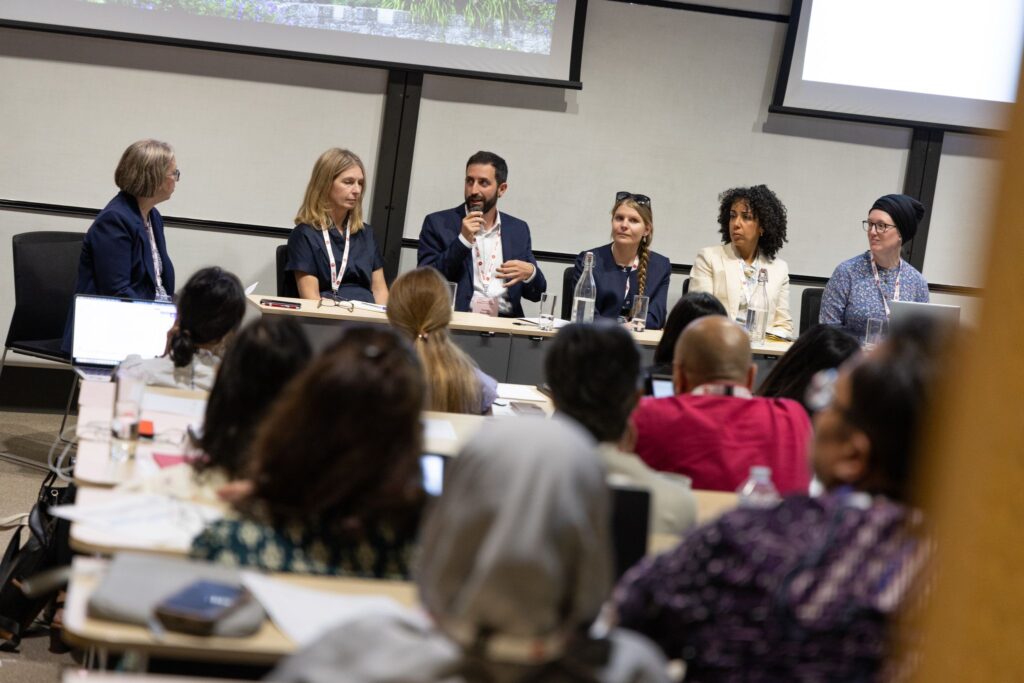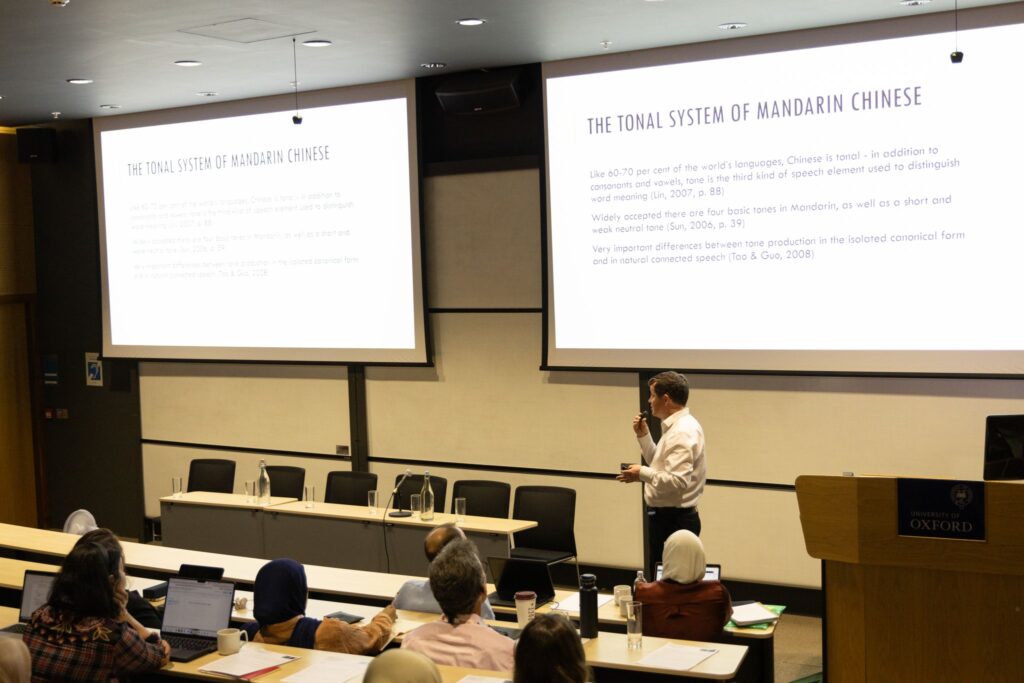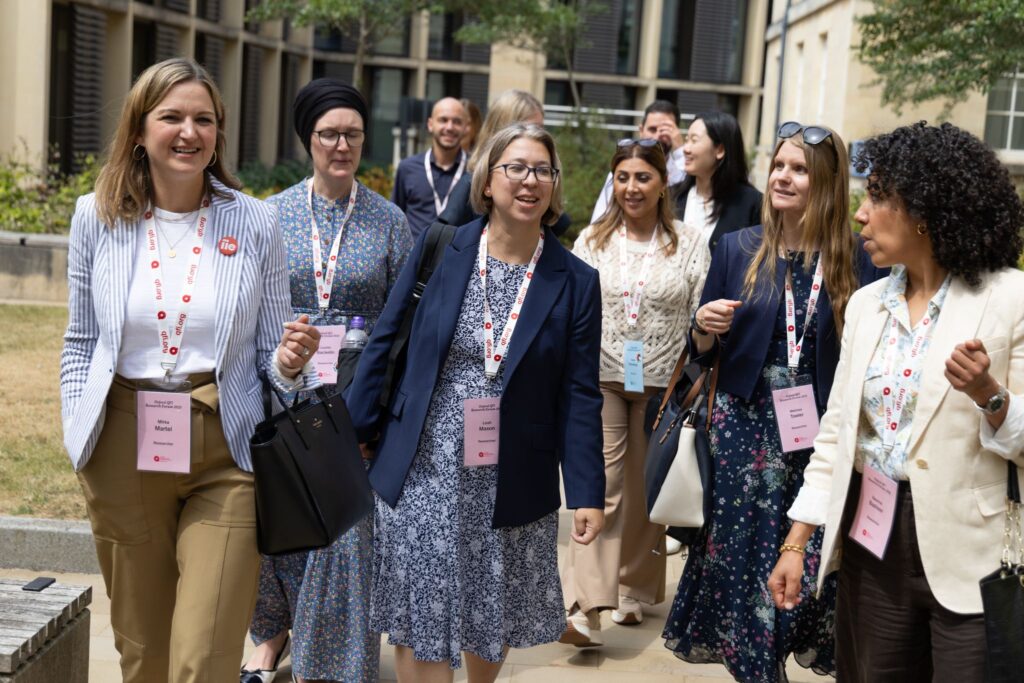This summer, IIE was honored to join the Oxford QFI Research Forum, a global convening of researchers, educators, and advocates dedicated to advancing Arabic language education. Held at the University of Oxford, the forum showcased the transformative potential of connecting academic research with classroom practice.
The opening session set a tone emphasizing the forum’s dedication to bridging the gap between research and classroom practice. This principle was exemplified in the inaugural panel featuring the Survey of Arabic Language Programs, a joint initiative between Qatar Foundation International and IIE that examines Arabic instruction by gathering essential data through surveys and stakeholder interviews to inform program development and improvement.

SALP is more than a data-gathering effort. It’s a comprehensive study of Arabic language instruction across six countries: Canada, Ireland, Italy, Sweden, the United Kingdom, and the United States. Through targeted surveys and in-depth interviews with stakeholders, the project is building a nuanced understanding of how Arabic programs operate, the challenges they face, and the opportunities for growth.
Panelists emphasized a key takeaway: when researchers understand classroom realities and educators apply research-informed strategies, the impact is profound. The result is stronger student engagement, more effective teaching methods, and sustainable Arabic language programs that support learners over time.
The second day of the forum highlighted the value of cross-linguistic collaboration. In the session titled “What Can We Learn from the Chinese Experience?” participants explored how lessons from Mandarin Chinese instruction could inform Arabic language education. The discussion revealed shared challenges—such as limited instructional time, varied student progress, and the need for robust teacher training—and generated practical strategies that educators can adapt to their contexts.

Another session focused on student motivation, exploring why learners choose Arabic and how programs can sustain that interest. By integrating research findings with real-world teaching experiences, participants identified two key drivers: meaningful cultural connections and clear career pathways. They also examined barriers to engagement, including outdated teaching methods and perceptions of Arabic’s difficulty.
The SALP project reflects a strategic partnership between QFI and IIE aimed at long-term educational improvement. As Jonah Kokodyniak, IIE executive vice president, noted, “Partnering with QFI on this important study marks a significant milestone for us and the field of language studies. The SALP Research Project will provide valuable insights to help develop more effective Arabic language programs, ultimately improving educational outcomes globally.”
Using mixed methods, SALP delivers the kind of in-depth analysis that can inform policy and practice. Beyond counting programs or students, the research examines teaching methodologies, policy frameworks, program structures, and demographic contexts. This approach uncovers the insights and interconnections that shape program success.
